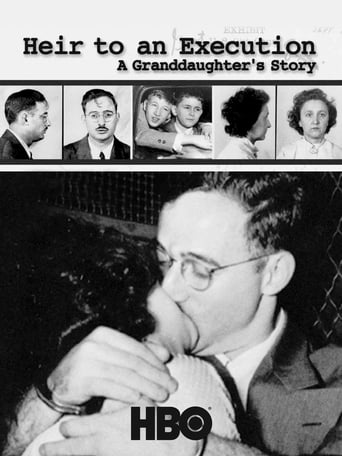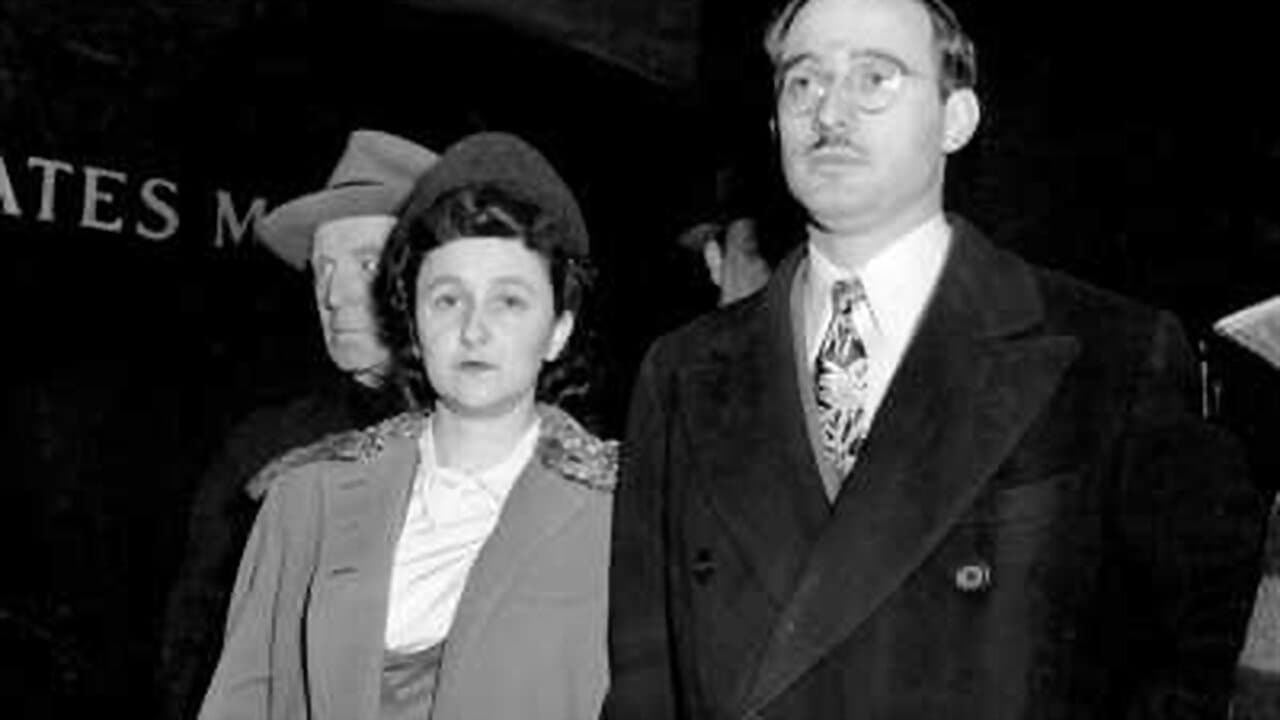leychica
I have always been fascinated by the Rosenbergs and was eager to see this film, but came away disappointed. It's a good thing I knew all about the Rosenbergs beforehand, because otherwise I would have been very confused. The film didn't give any back story on Julius and Ethel Rosenberg. Who were they? What did they (allegedly) do? How were they discovered? Why were they chosen to symbolize the witchhunt era? Why were they executed, when hundreds of other convicted spies were not? What evidence suggests they were guilty, and what evidence suggests they were not? A documentary should elucidate the viewer and make them feel more knowledgeable on a subject than before. Ivy did practically no historical research when making this film, which betrays the entire purpose of a documentary. She interviewed family members and tracked down old people who knew her grandparents, but otherwise provided no context. Someone who is not American, or unfamiliar with the McCarthyism era, would be baffled by this film, because it assumes that everyone already knows the story.It is clear that Ivy put her whole heart into this project, and the result is a very sincere attempt to humanize the grandparents she never met. However, I wanted to understand what truly happened, and my questions were not answered.The best thing about this film was Michael Meeropol, Ivy's father. He is a passionate, articulate activist who knows more about the subject than his daughter. The scenes in which he speaks were the smartest in the film. I began to wish that he had directed this documentary, and not his daughter. Ivy, despite her good intentions, is ditzy and a weak interviewer. She has the very annoying habit of trailing off questions halfway, and leaving her subjects to figure out what she is asking. Her interviews were unstructured and the narration was rickety.Furthermore, the biases and shoddy journalism are apparent. Ivy and her brother are naively insistent that their grandparents were "innocent" (a word that gets thrown around repeatedly) despite admitting that they never examined the evidence or studied the story beyond hearing it from their father. The Rosenberg records were unsealed by the government in 1995, and yet Ivy didn't bother looking at them until she made this film.Everyone has the right to know where they come from. While the Meeropol family's efforts to define their legacy are admirable, the result was a very amateurish film. It is too bad that another family member with better documentarian abilities didn't take the helm.
Strausszek
I saw this documentary investigation on TV recently, and it seems obvious it raises some questions about the Cold War era and about the kind of pressures that may apply in a courtroom. We'll probably never know just how far Julius Rosenberg, in particular, was involved in the top ranks of Soviet espionage on the U.S., or why he took what he must have known were grave personal risks to himself and his family. The accusation at the time that he'd "sold the secret of the atomic bomb to the Russians" was certainly an exaggeration; other people like Klaus Fuchs and British physicists seem to have handed over much more, and anyone interested in the era and the Soviet infiltration of the Manhattan project should read Allen Weinstein's "The Haunted Wood" - a pioneer work on Soviet espionage in America in the 40s and early 50s, written together with an ex-KGB veteran, and a book that makes real use of the Russian intelligence archives. One point he makes is that the NKVD (the KGB of the time) espionage activity in the U.S. seems to have declined sharply in the late 40s, and it had become really hard to find new agents (Mr Rosenberg may have been recruited as early as around 1940).Anyway, Meeropol's film takes no unequivocal stance on her grandparents' innocence. Her father believed in it for a long time, but he points out that the Venona telegrams (released in '95) seem to put this in doubt. On the other hand, the question of just why the atomic bombs were used on Japan is still debated among historians. The clips of Nixon ("if you set out to shoot rats, make sure you shoot'em straight!") and McCarthy make a powerful, if a bit predictable, picture of the paranoia. I just read a review in the ultra-right Frontpage magazine which poured venom on this film, labeling it a clever and cold propaganda work, meant to exonerate the Rosenbergs. This is bullshit; the movie is much more about the human cost of this sort of heavily publicized show trials, and about how even the nearest relatives drew off (not *one* of the next-of-kin would pick up the Rosenberg boys after the trial and execution). In one poignantly funny scene, Ms Meeropol's father recalls how he realized the role of David Greenglass in giving away his parents - he still had to pay a heavy price - and says: "I wanted to go to whatever little place where he lived now, sneak up behind him and purr "Ex-con!" He'd say, No, wait a minute, just don't talk that loud - and I'd raise my voice to a shattering "EX-CON!!" "Of course, a while later, Ivy Meeropol tells him (and us) how she felt exactly the same when she read about the case in school.The Rosenbergs were just two of the many people who were credited with low motives and acts of treason in these years, but because they seem so everyday (in a positive sense) the fragments of their story get all the more poignant.
bzb2001
The names Julius and Ethel Rosenberg bring on a sweeping sensation of treason. They have become the poster-children for anti-American hatred and fear of foreign ideology. But to some, the names mean mother and father; grandmother and grandfather.I must admit, before I saw this film I didn't even know the Rosenbergs had children. This is left out of history lessons since, after all, what did that have to do with anything? Heir to an Execution, a sensitive and thoughtful documentary from Rosenberg granddaughter Ivy Meeropol, sheds light into a shadowy area of communist spies and family tightness.Meeropol's film begins questioning the famed Rosenberg's death sentences by interviewing old friends and socialist peers. A door is opened into their world in a way I had never seen. Hated so fiercely by the rest of America, these revolutionaries have found their way from prisons to retirement homes.What is far more interesting, however, is what comes next. As Meeropol tracks her grandparents' lives to the electric chair the question of her father and uncle arise. What exactly did happen to them during the chaos? And more importantly, what was to be done with them after the inevitable? Political documentaries are sometimes dry and are often as subtle as a man with a stick pointing at an easel. Heir to an Execution is different. Meeropol raises doubts to at least part of the Rosenberg trial, if not all of it, while at the same time documenting the life of a wonderful man, her father. In the end we don't know which is more important, the Rosenberg injustice or the chronicle of a distinguished life whose path you would not expect winding up here. **** out of ****
John Seal
The historical record currently indicates that Julius Rosenberg probably gave the Soviet Union information, and that loyal wife Ethel was a bargaining chip used by brother David Greenglass to avoid prosecution. That's about as much background as one needs to appreciate and enjoy this deeply personal and very moving film about the aftereffects of the Rosenberg executions, and the worn out 'did they/didn't they' arguments are of only peripheral importance. Filled with fascinating interviews with the Rosenberg's children and a surprising number of elderly compatriots as well as some timely and frightening 1950s footage of anti-Communist hysteria, Heir to An Execution is an emotional attempt by director Ivy Meeropol (granddaughter of the convicted 'spies') to come to terms with a dark chapter in her family history. Strongly recommended.


 AD
AD
